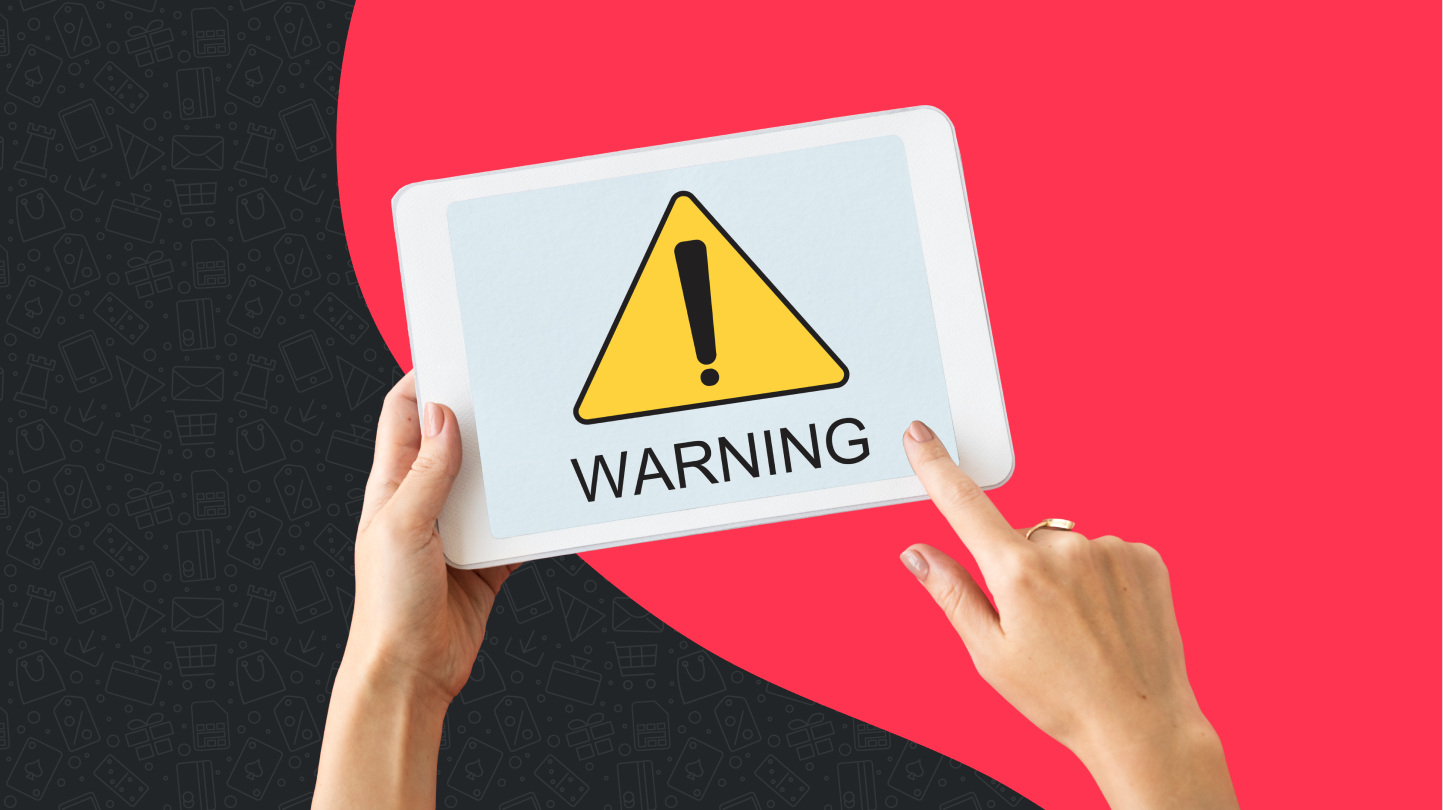Modern-day shopping looks a lot different than it used to. It's no longer about strolling through long aisles, perusing the shelves for a great deal. Today, it all comes down to search engines or huge shopping sites like Amazon and the ability to use them wisely. Online shopping scams are especially prevalent during the holiday season but also occur frequently throughout the year. So, even if you think you are immune to scammers because you are careful, alas it still could happen to anyone. Therefore, we at Dundle (US) decided to share some tips on how to understand if the online retailer with those unbelievable deals is a scam or not. Here is a list of red flags all online shoppers should be aware of.
Tip 1: Poor English
This is the first sign of bad copywriting and possible scams. Poor language is an easy indication of a fake site. It also confirms that the online store was created quickly and sloppily. Fraudsters are everywhere and constantly produce these scam sites with the sole goal of ripping you off. Therefore, we recommend always taking your time to read the product description and study the About Us page of the sites you want to trust. If you have a suspicion that the text was Google translated or it contains a lot of mistakes, then it may be best to skip on that amazing deal before you are parted with your money.
Tip 2: Great Deals Lead to Empty Wallets
So, there you are, on the hunt for a Gucci bag or the newest gaming console at the cheapest price possible. It leads you to an amazing discovery: a website that sells brand-name items at bargain prices. So tempting just to buy it all, right? Well, try to remember that if the new brand products are sold at an unbelievably low price, the probability of you getting fake stuff or no stuff at all is very high. If it’s too good to be true, it probably is. That’s not to say bargains aren’t out there! But, it is smart to remain realistic when it comes to internet purchases.
Tip 3: Always Read the Reviews
If you have doubts about an online store, or it is your first time shopping there, it is always a good idea to learn more about it from other people’s first-hand experiences. Navigate through the internet and check the feedback about the company across different platforms. Trustpilot is a great tool. You can also check with the Better Business Bureau or Consumer Protection Agency to find or report a scam.
Tip 4: Social Media Stores
If you’ve ever bought anything from Instagram shops, you probably already know where we’re going with this one. Social media offers are always colorful. They dazzle you with attractive ads and a wide selection of brands and products at a very affordable price. It’s easy to fall for. Yet, what you should do is to stop for a moment, take a deep breath and do your research before you place an order.
Check if the social media shop has an actual website and if you can contact the reseller easily. And as we stated in the previous tip, check the reviews. If you happen to have friends who follow the same shop on social media platforms or have already purchased from it, then ask for their feedback. Pay attention to the number of accounts followed by the shop. If this number significantly exceeds the number of shop followers then there is a good chance you are dealing with fraud. Don’t get carried away by the “instamodels” and eye-catching ads, no matter how tempting.
Tip 5: Look at the URL
Checking the online store’s URL is like having a stress test done on a car. It is a quick and efficient way to avoid running into problems down the road. Nevertheless, you will be surprised how many people actually fail to pay attention to this little detail that can eventually determine if they are going to lose their money or not. So first and foremost, make sure that you shop in the right domain. For example, you want to purchase a PaysafeCard at Dundle (US). Have a look at the domain name and make sure it is exactly Dundle.com. If it has some extra information before subdomains or simply looks different than the true URL, then you are better off leaving the page because you’ve likely entered a fake online store.
Tip 6: Pay Attention to the Payment Methods
Even the best fraudsters in the world share one common flaw. Almost every fake website does not accept conventional payment methods like debit cards and credit cards. Instead, they will offer you to check out using gift cards and the like. Why? Because it leaves you zero chances to claim a refund. In other words, red flag.
Tip 7: Check Their Terms and Conditions
Every proper shop should have a page with terms and conditions and privacy policies. Therefore, if you stumble upon a webshop with no pages containing legal information, we would recommend closing the tab and cleaning up your cookies. This is a pretty good warning sign that something is not right with the site. In some cases, there may be terms and conditions pages, but as soon as you take a closer look, you will notice that some crucial information might be missing. For instance, if the T&C page doesn’t mention the company’s legal name or is poorly written, you’d better not buy there.
Tip 8: Trust Your Browser
It won’t steer you wrong. If your browser is telling you that the website you are about to visit is not safe, we suggest you believe it. A padlock in the address bar of your browser shows that you are on a secure site. Otherwise, you can end up in the very unpleasant situation of losing, not only your money, but also your private and financial information.
Tip 9: Check the Contact Page
If the shop is reliable they have nothing to hide, and they are always happy to answer the phone and help their customers through whatever means of communication. Therefore, before you buy from a newly discovered e-store, make sure to visit their contact page and find the company’s address, phone number, professional email. Also, there you’ll find links to the shop’s official social media accounts and possibly their CRN (Company Registration Number). Remember, a trustworthy reseller or merchant wants to make it easy for their customer to contact them.
Bonus tip: Don’t Fall for It
Sounds basic, but it isn't. One of the most important things to remember when shopping online is to be aware. Unfortunately, cybercriminals are lurking and just waiting for the opportunity to steal your credit card number or rip you off with their latest phishing scam. Don't fall for their dirty tricks. Follow our simple tips to avoid identity theft and other online crimes and have a pleasant online shopping experience.






